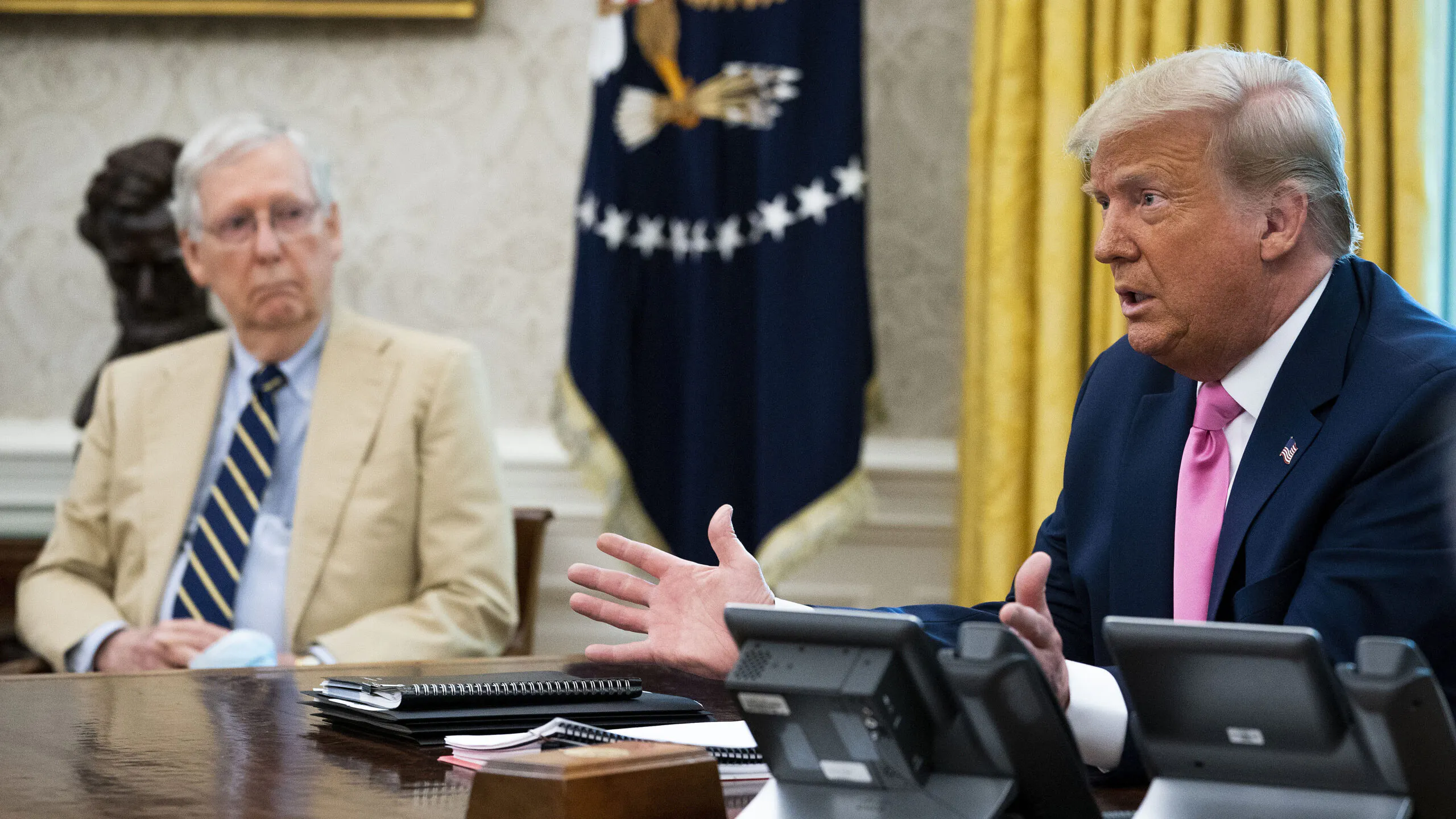President Donald Trump is reportedly considering “unilateral” action on a coronavirus relief package after negotiations between House Democrats and Senate Republicans stalled over the weekend, largely over how much the next bill should give in supplemental unemployment benefits.
The Democrats passed their own version of a fourth coronavirus relief package back in May: a $3 trillion bill that includes bailouts for states experiencing coronavirus-related budget shortfalls (though the bill does not specifically require states to demonstrate the budget shortfall did not precede the virus), a bailout for the United States Postal Service, and an extension of a $600-per-week federal supplemental unemployment benefit.
The bill also contained a controversial repeal of the “SALT” cap, a federal tax deduction that covers state and local taxes and largely benefits high-income earners in “blue” states.
Last week, Senate Republicans passed their relief package, but limited spending to $1 trillion, rolling back Democrat commitments to state governments, to the USPS, and to the unemployed, dropping the supplemental federal benefit to $200 per week, but adding a number of extensions for small businesses.
Both bills offer significant bumps in funding for schools and hospitals dealing with the fallout from the coronavirus pandemic, and both bills authorize another round of $1200 payments to individual taxpayers.
Late last week, Democrats brought negotiations on the topic to a screeching halt, suggesting that the disagreement on unemployment benefits was an insurmountable difference. They held that position over the weekend.
Monday morning, a White House official told Fox News that, while the president is hopeful that Congressional negotiations may continue, the administration is preparing for exigent circumstances.
“As the negotiations continue to progress as a snail’s pace, the administration is considering a number of options that might be available without congressional legislative action,” the unnamed official told Fox.
It’s not clear, though, as Fox News notes, what the administration could do without Congressional approval. It is unlikely that the White House could move to extend the federal supplemental unemployment benefit on its own, and while executive orders have a significant reach, President Trump cannot force either party to the bargaining table.
In the interim, the White House is suggesting that Trump supporters put pressure on Senate Majority Leader Mitch McConnell to ink a plan, even if it involves giving way on the $1 trillion spending cap McConnell put in place last week ahead of bargaining. White House Chief of Staff Mark Meadows seemed to tell Fox News that the Trump administration is more open to extending the full $600-per-week benefit than the president’s congressional allies.
“Those that are counting on enhanced unemployment need to be gravely concerned about the lack of progress,” Meadows said. “My recommendation would be for them to call their members of Congress and their senators and ask them why they are not willing to compromise when obviously the White House is willing to compromise.”

.png)
.png)

